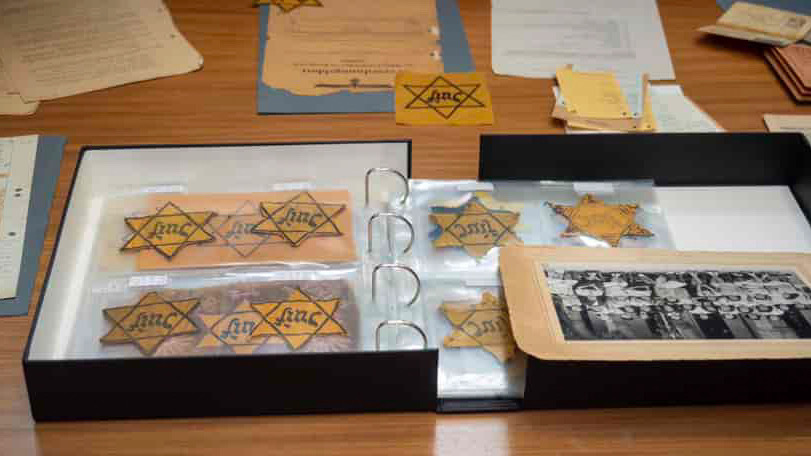
When I discovered, in early summer 2019, the testimonies of the Holocaust survivors collected by my friend Jean-Marie Montali, for the purposes of his book Nous sommes la voix des morts (« We are the voice of the dead », Le Cherche-midi, October 2020), I was reading an unpublished text by Hannah Arendt, which had just been published in the excellent collection About & Around, published by Allia editions.
Entitled « We Refugees », this text first appeared in January 1943 in The Menorah Journal, New York. Paradoxically, we had to wait until January 2019, to finally see it translated and published in France.
And the discovery – even 76 years later – of this dense and poignant text, edifying with courage and lucidity, casts an unparalleled light on the portraits of concentration camp survivors, through which Nous sommes la voix des morts has succeeded in describing the unspeakable and in naming, with singular sobriety, the absolute horror that is the Holocaust.
Read exclusive extracts from the book
Hannah Arendt’s story of the German Jewish refugees dates from more than two years before the liberation of the camps, while the testimonies of Holocaust survivors collected by Jean-Marie Montali had just celebrated the 75th anniversary of this liberation. However, We Refugees echoes the “unbridled optimism” that characterises these testimonies of camp survivors, even if their modesty and benevolent sobriety conceals a “silent pessimism” that most often leads them to “avoid any allusion to the concentration or internment camps they experienced”.
Not because they want to “forget”, as recommended by “the wise advice of [their] saviours”, but because “by displaying their optimism, they try in vain to keep their heads above water”, thus becoming “people haunted by a fixed idea and who can’t help but try everything to hide an imaginary stigma”.
Seventy-seven years ago, Hannah Arendt explained the lead weight that had fallen on the survivors of the Holocaust by the fact that “nobody likes to hear about all this”, because the stories of the survivors of the Nazi extermination camps proved that “hell is no longer a religious belief or a fantasy, but something as real as a house, a stone or a tree.”
Today, on the contrary, Nous sommes la voix des morts proves us that the maintenance of the painful memory of the Holocaust is the only rampart to guard against the resurgence of this hell.
Reading these testimonies, who can resist Jean-Marie Montali’s desire to hug the fragile bodies of these camp survivors? And more than ever, every humanist must proclaim loud and clear: We are all survivors of the Holocaust!